We work with insurances. Verify yours now
Men’s PHP in Austin | Highly Structured Outpatient Treatment
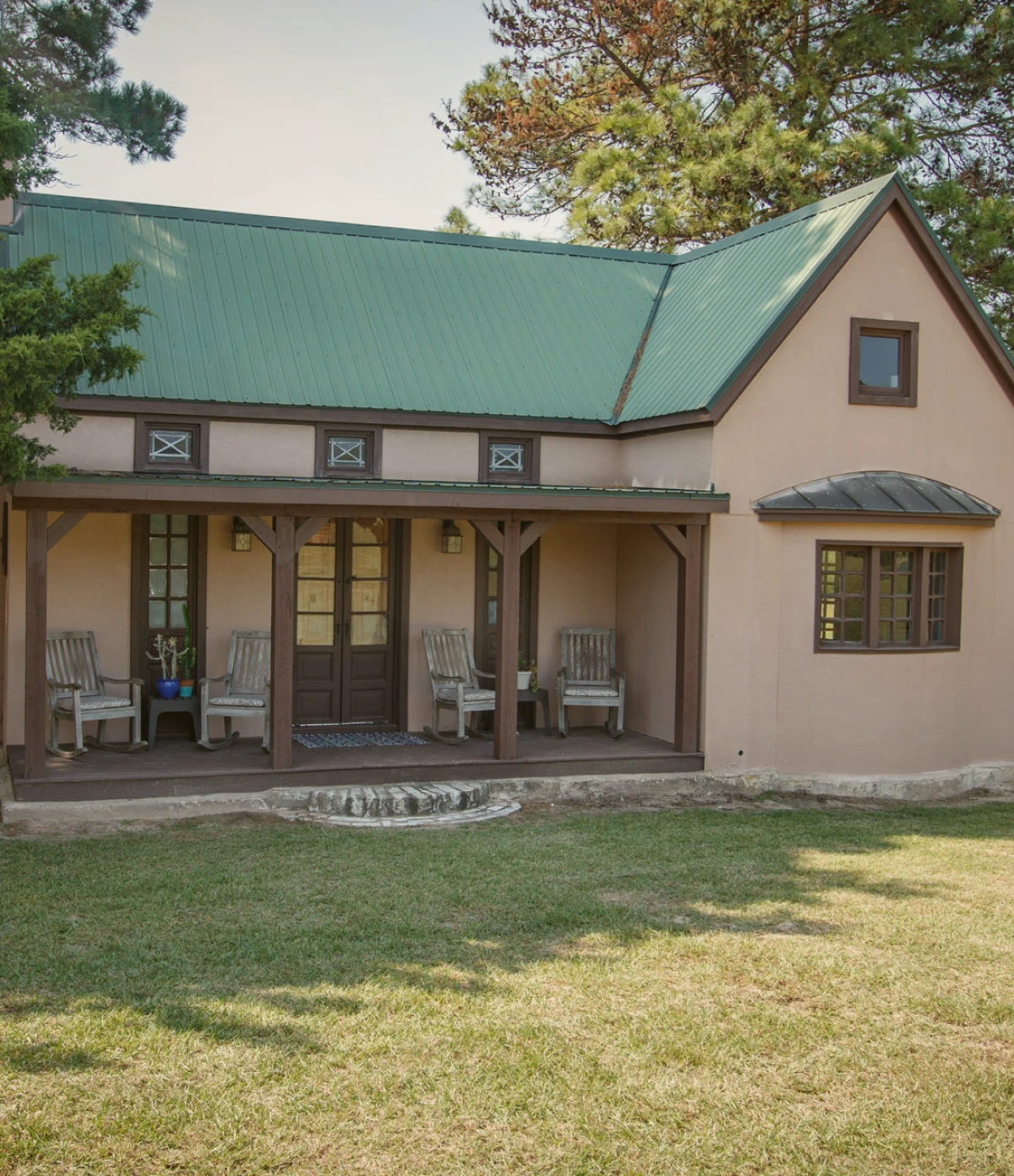
A partial hospitalization program (PHP) is the logical next step when you’ve successfully moved beyond inpatient treatment requirements. Now, you’re ready to begin applying yourself anew to life, family, work, and lifelong goals, but you’re not prepared to operate without the daily structure and support of a residential substance use treatment program.
The PHP level of care is intensive outpatient treatment on a daily schedule that allows you to maintain connection, community, and support while still showing up at home, work, or school. This program offers full-time care without the requirement of on-site living and helps you continue to solidify recovery foundations.
The scope of treatment changes as you progress on your recovery journey. Hosted at our Austin-based clinical campus, The Last Resort’s dual diagnosis PHP offers the same master-level treatment quality and access to our signature Equine-Assisted Therapy at the ranch.
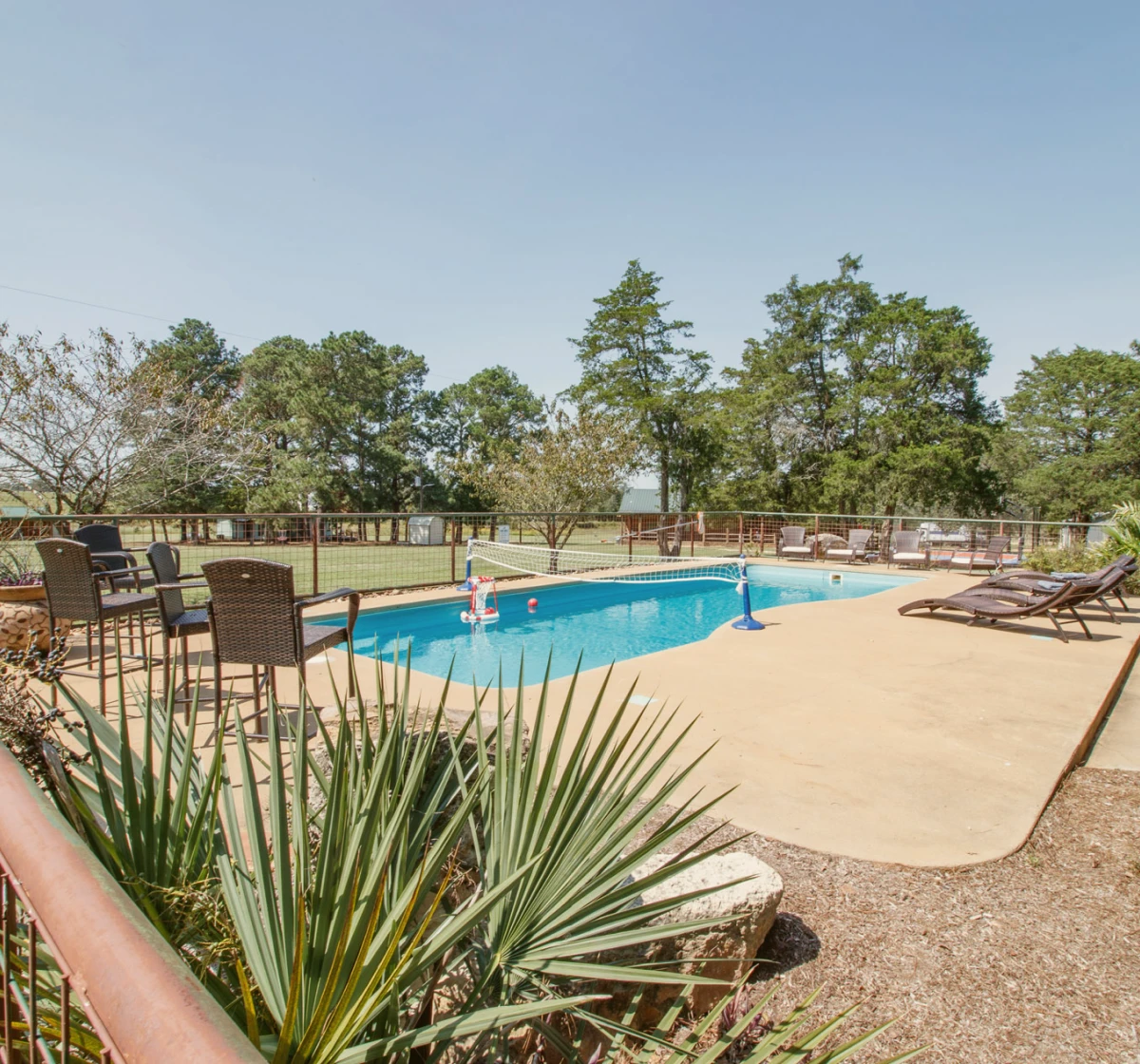
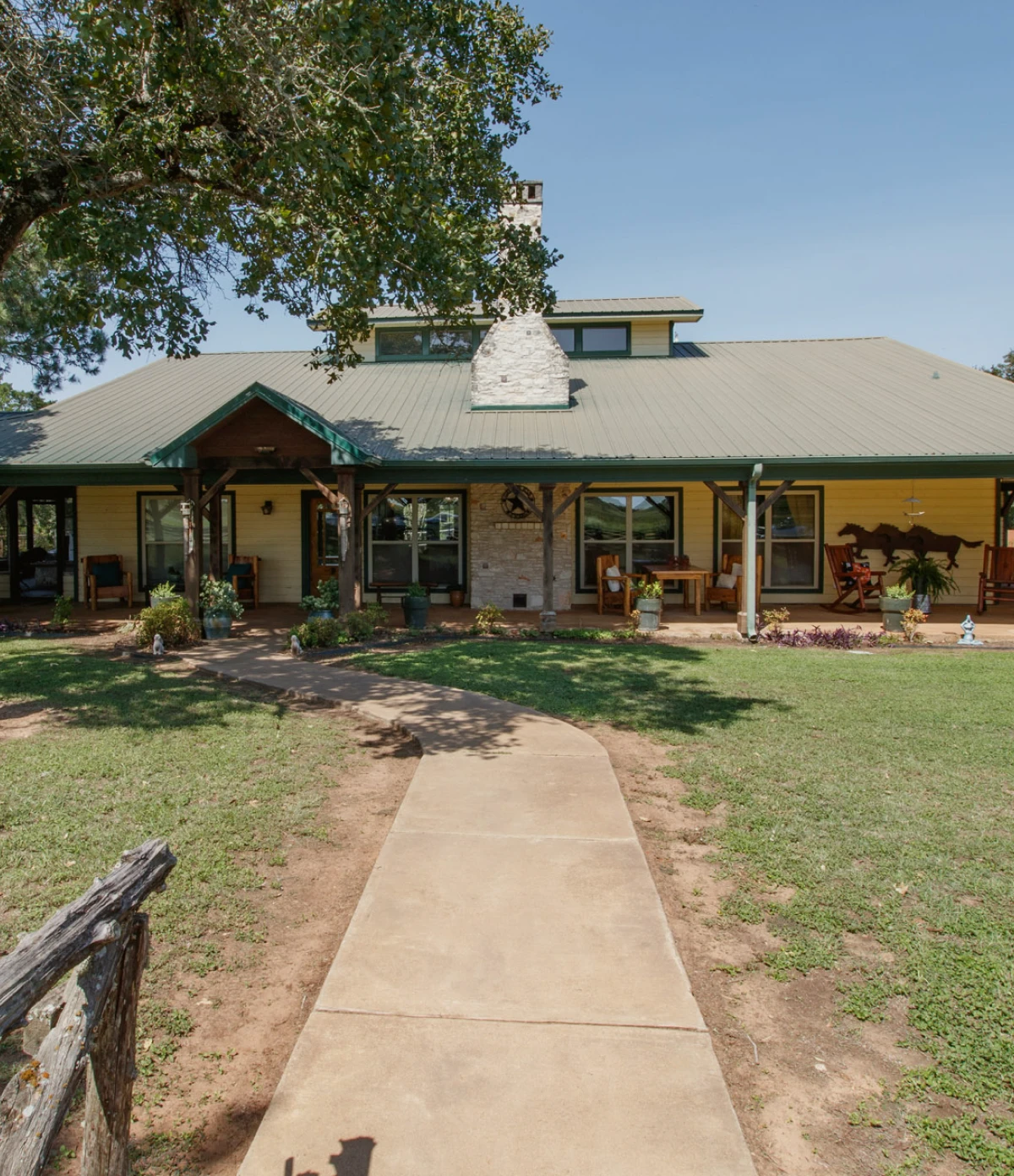
Partial hospitalization programs blend structured therapy modalities, daily support, and peer involvement to identify and address alcohol and substance use disorder challenges.[1] These addiction treatment programs offer intensive care from a multidisciplinary team, a recovery community where you can engage, coping skill development, and opportunities to address drug and alcohol concerns and any underlying mental health issues from a holistic perspective.
At The Last Resort, our men’s substance use and mental health PHP runs for five hours a day, five days a week. This ensures you or your loved one receives comprehensive support tailored to your specific needs that meets you where you are. This level of care is considered full-time treatment but doesn’t require on-site residency.
Participants can live in sober living houses or at home while attending daily treatment. You will also continue access to our wide range of holistic methods, including Yoga Therapy, Acceptance and Commitment Therapy (ACT), and Equine-Assisted Therapy, as determined by your treatment program.

The efficacy of partial hospitalization is similar to inpatient recovery and provides many of the same benefits.[2] One study recorded that those who participated in PHP programs showed lower hospitalization rates (by 220%) and fewer days in the hospital (by 440%).[3]
Not everyone needs inpatient care, nor can everyone cover any costs not covered by insurance. Our partial hospitalization program in Austin bridges the gap between inpatient levels of care and the freedom and flexibility you need to maintain your life and obligations outside treatment—with a more affordable price tag.
Meet the team that’s ready and eager to support your recovery.
We’re excited to share the positive experiences of our other community members, many of whom were where you are today – overwhelmed and uncertain. These are their stories. What will yours be?
Following a comprehensive assessment and whole-person evaluation, we will determine the best level of care for you and create a customized treatment plan. Every intervention will be tailored to your unique needs and may include the following signature methods
Our equine program is a trauma-informed guided therapy that offers a hands-on approach to healing where you will work with our gentle horses to improve communication, empathy, resilience, and more.
CBT is based on the idea that thoughts fuel feelings and feelings fuel actions. By identifying harmful thought patterns and the feelings and actions they lead to, you can begin to formulate healthier patterns.
Group therapy is an essential core framework of any PHP. Peer support and group recovery increase your investment in your recovery and give you a safe space to develop coping skills, share your experiences, learn from others, and give back.
The role of the family in addiction recovery is crucial. We have integrated Family Therapy and family addiction counseling in every level of care to help you and your family members improve conflict resolution and communication and build a stronger bond.
The 12-step framework has long been established as a beneficial tool in recovery. Here, you can build new sober relationships, get access to sober events, serve your community, and adhere to a proven structure.
Every treatment plan is different and may not include all modalities. However, the following interventions are also part of our programming
Whether you’re starting at the Partial Hospitalization level of care or graduating from a residential program, there is no wrong way to approach healing. Your recommended level of care can always be adjusted based on your goals and progress. Aside from PHP, The Last Resort treatment ladder includes the following programs
Our 55-acre horse ranch offers peaceful serenity where you will receive 24/7 care, medical management, and daily full-time treatment as you navigate withdrawal and early recovery.
Also housed on our 55-acre ranch, you will receive daily, full-time treatment and build a tight-knit community of other recovering men.
This level of care is hosted at our clinical campus in Austin, Texas, and offers highly desirable flexibility without compromising access to vital treatment.
After formal and structured treatment programs are over, support and treatment can transition to a one-time weekly or “as needed” basis.
Our sober living program offers a clear and structured process for treatment and support with a housing option.
Wherever you fall on the continuum of care, we’re here to support you and your family. Reach out to our admissions team today to get started.
We’re here to be the solution you seek and empower you to pursue the healing you need. Reach out for help today and step forward in confidence.
Paying for treatment should never be a barrier to recovery and healing. There are several options available that do not put your family in financial jeopardy. The Last Resort is an in-network provider that works with most insurance companies.








Come experience a healing adventure like none other. Our expansive and secluded men’s-only ranch sits on 55 acres of central Texas beauty and is a tranquil sanctuary designed to promote rest, reflection, and recovery.
From rolling hills and ancient tree groves to warm ranch-style accommodations, you’ll feel right at home. You’ll enjoy a full range of amenities and experiences, including an outdoor pool oasis, a fitness studio, and a fully-stocked horse barn.
Our secondary location is a comfortable, modern facility with shared and private spaces that is home to all of our outpatient services. This center is conveniently located in south Austin off Menchaca Rd.
When drug or alcohol addiction takes root in your life, it colors everything you do, how you show up at work, at home, and for yourself. Your family often feels the worst of it. You know this is not what you had in mind for your life. There has to be a healthier way to manage your emotional distress and overcome the challenges you face.
As the opioid epidemic has continued to explode, so has the treatment industry. Unfortunately, not all are of the same quality or the same caliber.
Accredited status for our addiction treatment center confirms that the services we offer meet or exceed the official standards of practice established by the state and other governing organizations by passing a series of detailed assessments.
Understanding accreditation affords you and your loved ones the confidence to pursue long-term recovery with renewed peace of mind.
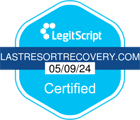

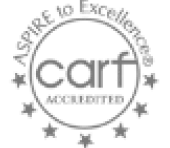

If you or a loved one is battling alcohol or drug addiction, you’re in the right place. Even if you’ve tried other treatment programs or think you’re at the end of the line, this is the community you need to thrive. We can’t wait to facilitate your recovery and be part of your success story.
The length of our Austin PHP varies based on individual needs, typically ranging from 4-8 weeks. Your treatment team will regularly assess your progress and make recommendations for your continued care.
PHP provides intensive therapeutic care during the day while allowing clients to return home or to a sober living environment in the evenings. Residential treatment involves 24/7 care with overnight stays at our facility. PHP offers more independence while still providing structured, comprehensive treatment.
The overall goal is to bridge the gap between inpatient care and part-time care. A PHP program helps you continue the progress you made in residential rehab while still pushing yourself to greater independence and self-efficacy.
Due to the intensive nature of the program (30 hours per week), most clients find it difficult to maintain work or school commitments during PHP treatment. However, our evening schedule does allow for limited part-time commitments and family responsibilities.
Most clients transition to our Intensive Outpatient Program (IOP) after completing PHP. This provides continued support while allowing for more independence and reintegration into daily life in the Austin community.
Most clients live in our sober living homes during PHP, which allows for easy coordination of transportation to and from our outpatient center. We work with each man to find solutions based on individual needs. Please discuss any transportation needs with our admissions team.
[1]Leung, D. (2010). Impacts Associated with the Medicare Psychiatric PPS: A Study of Partial Hospitalization Programs. Centers for Medicare & Medicaid Services. Retrieved from https://www.cms.gov/Research-Statistics-Data-and-Systems/Statistics-Trends-and-Reports/Reports/downloads/Leung_PHP_PPS_2010.pdf
[2]Khawaja, I. S., & Westermeyer, J. J. (n.d.). Providing crisis-oriented and recovery-based treatment in partial hospitalization programs. PubMed Central (PMC). https://www.ncbi.nlm.nih.gov/pmc/articles/PMC2848466/
[3]Walker, J. R., & Rost, K. M. (1999). Efficacy and cost effectiveness of partial hospitalization. Psychiatric Services. Retrieved from https://pubmed.ncbi.nlm.nih.gov/10311344/
As part of our commitment to clients and families, we share high-quality resources, industry-related news, and practical education with those in our circle of influence. We hope these resources equip and inspire those who read them to take positive, healthy action.
The goal of all content is to empower and equip without compromise. Every resource The Last Resort creates is not supported by sponsorship or advertisers and is therefore free of bias and murky agendas.
All of our educational materials are produced or reviewed by the team at The Last Resort. We staff and consult with subject matter experts and industry professionals to ensure all that is shared is accurate and accessible.